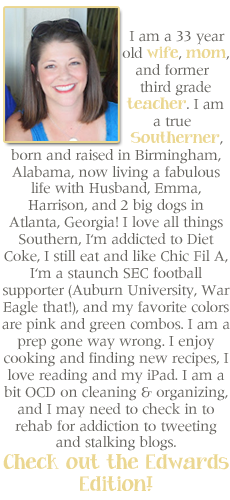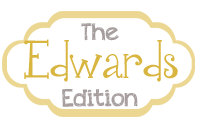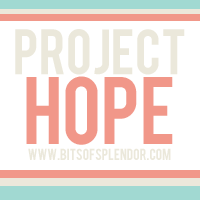I have always wanted to teach Emma how to sign before she was verbal. I had allllll these ideas of things I was going to do when I had a baby. That was before. I cannot find the time with a full time job and one year old to research the best signing programs and actually implement them with Emma.
I have read many blogs where people (friends, even) are successfully teaching their babies to sign. Signing is proven to be a great pre-verbal agreement with children to get them used to communicating.
Being a teacher, I love "research based" theories. I know that language is super important and forms a child's educational background. Many people know that talking to your child ("regular talk" and baby talk), reading to and with your child, and now signing, are ways to help your child to become verbal earlier and in more advanced ways.
When Emily, the Communications Coordinator for Primrose Schools, contacted me and asked if I would share an article she wrote on signing, I jumped at the chance! Like I said before, I am a big fan of signing and am trying to work on it now with Emma. I still think she could pick it up and become a fan. :D
So, I hope you will read and enjoy the article that was co-written by Emily. It's copied below. Any questions? Send them my way!
Also, who has signed with their kids and what were your results???
Children Should Learn Sign Language Early to Earn a Competitive Edge
One of the keys to surviving in a tilted economic system in which opportunities to achieve a decent standard of living will be limited is versatility – and the ability to communicate articulately in a variety of ways with the widest possible audience. This includes bilingual ability as well as the ability to communicate in non-verbal ways for the benefit of the disabled – primarily the deaf.
At the same time, a growing shortage of qualified interpreters fluent in American Sign Language has led to more career opportunities – and if current trends continue, it's likely that skilled ASL interpreters will have little problem securing lucrative employment in a society where such a commodity is destined to be in short supply.
Signing Before They Can Speak
A great deal of research has clearly demonstrated that the early years – ages 2 to five – are the best time to educate children in different modes of communication and language. This goes beyond the spoken word (though it is an optimal time for children to learn a second language); many young children have an aptitude for signing as well.
This is not as odd as you may think. As you know, many indigenous peoples around the world,
including American Indian nations, have used sign language for centuries to facilitate communication with other tribes with whom they do not share a language. Some paleontologists and anthropologists theorize that Neanderthals – who apparently lacked the vocal mechanism to produce many spoken words – depended a great deal upon hand gestures to communicate.
In fact, recent research suggests that sign language is innate. An article published in the Boulder Daily Camera in 2003 presented strong evidence that babies as young as six months old communicate with their hands:
"...by 6 to 7 months, babies can remember a sign. At eight months, children
can begin to imitate gestures and sign single words. By 24 months, children
can sign compound words and full sentences. They say sign language reduces
frustration in young children by giving them a means to express themselves
before they know how to talk." (Glarion, 2003)
The author also cites study funded by the National Institute of Child Health and Human Development demonstrating that young children who are taught sign language at an early age actually develop better verbal skills as they get older. The ability to sign has also helped parents in communicating with autistic children; one parent reports that "using sign language allowed her to communicate with her [autistic] son and minimized his frustration...[he now] has an advanced vocabulary and excels in math, spelling and music" (Glarion, 2003).
The Best Time To Start
Not only does early childhood education in signing give pre-verbal youngsters a way to communicate, it can also strengthen the parent-child bond – in addition to giving children a solid foundation for learning a skill that will serve them well in the future. The evidence suggests that the best time to start learning ASL is before a child can even walk – and the implications for facilitating the parent-child relationship are amazing.
Co-written by Emily Patterson and Kathleen Thomas
Emily and Kathleen are Communications Coordinators for the Zionsville child care facility, a member of the AdvancED® accredited family of Primrose Schools (located in 16 states throughout the U.S.) and part of the network of Indiana child care preschools delivering progressive, early childhood, Balanced Learning® curriculum.
Emily Patterson
Communications Coordinator
Primrose Schools
epatterson@primroseschools.com
Subscribe to:
Post Comments (Atom)























I think Sarah & John's friends (the Bookers maybe?) have taught their son to sign. I even think Sarah said she wanted to teach Scarlet? Good luck with Emma!
ReplyDeleteIt's easier to acquire than verbal language due to the gross motor skills children possess at an earlier age as opposed to the fine-tuning they need to do to obtain mastery over vocal cords.
ReplyDeleteIt has been show to provide communicative opportunities for parents with children who have disabilities, that is correct. However, it is a fine line between expressing wants and needs as opposed to having a full-out conversation with one another.
My personal opinion on language and a child is that we have a responsibility to provide the child with as many language modalities and opportunities to express themselves, and sign is one avenue to explore.
I think you'd have success with Emma, I don't know as much about the literature with teaching your child to sign, but if you need book recommendations for teaching yourself some basics, let me know!
my husband is anti signing (he's convinced it delays speech even further). i am a special education teacher...and think signing is a great idea. i started with "all done" and she got that pretty quick. i had been trying "thank you" and "please" for weeks to no avail. i quit about three weeks ago. and then what to my wondering eyes should appear?? but little one signing please and thank you. it works. you can do it!!
ReplyDeleteI am a speech-language pathologist and a big advocate of signing. I taught my first son to sign...we started at around 8 months and he caught on FAST. I am sure it is what helped him to speak verbally more quickly. I plan to teach my new baby to sign at an even earlier age. I love it!
ReplyDeleteThat same girl asked me to talk about that too!, oh well you a better at that than me
ReplyDeleteIt really does work, we taught signs to my two youngest siblings and it was amazing. We started with more, all done, please, thank you and eventually moved onto to signs for objects and types of food (milk, juice etc.). It was fantastic to be able to communicate with them at such a young age instead of having them scream their heads off and you try to guess!
ReplyDeleteMy nephew signs, as does the daughter of some friends of mine and we all think it's great! I fully plan to sign with my future child/children. I think it's a wonderful communication tool.
ReplyDelete